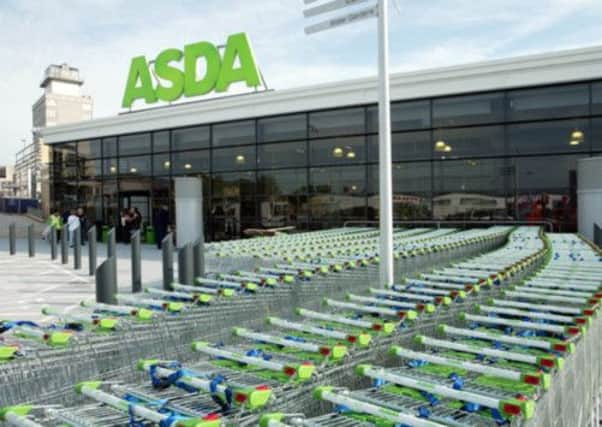Five more years of economic pain for poorest, warns Asda


Asda’s chief executive Andy Clarke called on the Chancellor to raise the level workers have to pay tax from £9,440 to £12,875 – the annual salary of someone earning the minimum wage.
The threshold is due to rise to £10,000 next April.
“I’d encourage a movement to lift tax thresholds to £12,875. It would certainly help the young and those people who need it the most,” he said.
Advertisement
Hide AdAdvertisement
Hide Ad“The biggest squeeze is on the young. Sadly the poorest people will do least well.
“An increase in the income tax threshold will benefit everyone, helping to stimulate spending and economic growth, particularly those on the lowest incomes whom we know will be the hardest hit over the next five years.”
He also called on businesses to get closer to education, whether it’s through work experience or apprenticeships.
“I’d like to see better opportunities for the one million young people currently out of work,” he added.
Advertisement
Hide AdAdvertisement
Hide AdLeeds-based Asda released its latest Income Tracker report yesterday, which was carried out by the Centre for Economic and Business Research.
The research showed that consumer price inflation will outpace wage growth, growing year on year by an average of 2.5 per cent compared with average wage increases of 2.2 per cent a year between 2013 and 2018.
Mr Clarke warned that lower-income households and single parents are expected to see their disposable income squeezed the most over the next five years following the introduction of a one per cent cap on working-age benefits in January 2013.
Lower income households will see their discretionary income fall by almost a third (29 per cent) to £1,200 a year – equivalent to just £23 a week
Advertisement
Hide AdAdvertisement
Hide AdThe research found that in 2013, the average UK household is £868 a year worse off, in real terms, than they were in 2009.
Asda warned that the level of household discretionary income is likely to stay below the current £160 a week mark until the last quarter of 2018, when it will begin to rise above this level once more.
The research blamed stubbornly slow income growth and rising inflation as the biggest factor, with price inflation on essential items expected to outstrip average pay growth until 2018.
As a result, over the next five years the average UK household is expected to spend £3,900 a year more on essential items such as housing and utilities than they do today.
Advertisement
Hide AdAdvertisement
Hide AdAsda said the continued weaknesses in the labour market will also add to the squeeze and wage growth is unlikely to top pre-recession levels (four per cent) in the next five years.
The research said that although private sector job creation is expected to help bring down joblessness, further public sector cuts are forecast to prevent the unemployment rate from falling beneath seven per cent over the next five years.
”Looking ahead to the next five years, one thing is clear – it’s going to remain incredibly tough for consumers,” said Mr Clarke.
“While the economy may be on the road to recovery, our report shows that the economic reality for them is very different depending on where you live and your age. I want a fair recovery. It feels very different in different parts of the country.” By 2018 lower-income households and single parents will spend over a fifth of their weekly “essentials” budgets on rent and utilities – considerably more than most other household types.
Advertisement
Hide AdAdvertisement
Hide AdAt the other end of the scale, higher income households are expected to see slow but steady growth (up two per cent or £300 in annual terms) in discretionary spending power between 2013 and 2018, as wage growth slowly starts to recover.
News: Page 4; Blackfriar: Page 3